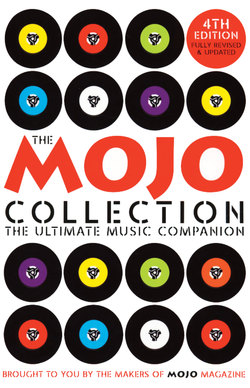Читать книгу The Mojo Collection - Various Mojo Magazine - Страница 110
На сайте Литреса книга снята с продажи.
The Appletree Theatre Playback Saturday Night Live meets Sgt. Pepper in an innovative – and irreverent – theatrical concept album.
ОглавлениеRecord label: MGM/Verve Forecast
Produced: John and Terence Boylan
Recorded: Mirasound Studios, NYC; 1967
Released: January 1968
Chart peaks: None (UK) None (US)
Personnel: J Boylan (v, g, p); T Boylan (v, g, b); C Israels (b); L Coryell (g); M Equine (d); P Griffin (p, o); C Rainey (b); H Lovelle (d); E Gale (g); B Saltzman (d); Z Yanovsky (g); M Brown (cello); The NY Philharmonic Orchestra; Pete Spargo (executive producer)
Track listing: The Altogether Overture: In The Beginning; Hightower Square (S); Act 1: Lullaby; Saturday Morning; Nevertheless It Was Italy; Act 2: I Wonder If Louise Is Home; Chez Louise; E-Train; Meanwhile; Brother Speed; You’re The Biggest Thing In My Life; Act 3: Don’t Blame It On Your Wife; The Sorry State Of Staying Awake; Epilogue: Barefoot Boy; Lotus Flower (S); What A Way To Go (S)
Running time: 33.28
Current CD: Not currently available
Further listening: Terence Boylan – Alias Boona (1969)
Further reading: www.geocities.com/badcatrecords/APPLETREEtheatre.htm; www.terenceboylan.com/biography.html (both fan sites)
Download: Not currently legally available
After spending their early teens in England absorbing the influences of the Goon Show and Beyond The Fringe, brothers John and Terence Boylan returned to America to study drama at Bard College, near Woodstock. There they formed a band with fellow students Walter Becker and Donald Fagen, performed comedy skits with Chevy Chase and even got to hang out with their hero Bob Dylan. Vacations were spent playing the coffee house circuit in New York. One evening, confined to their apartment by illness, the brothers composed Hightower Square. If the song’s staccato rhythm owed a conscious debt to The Beatles’ Penny Lane, the bridge, which incorporates a spoken-word skit about smoking banana peel, pointed in a rather more light-hearted direction.
Having persuaded MGM to finance an album, the Boylans enlisted the services of the hottest session musicians they could find, while the presence of innovative engineers like Bill Szymczyk ensured that musical quality was never sacrificed to comic effect. As John recalls: ‘Because we were in the business we knew what these players could do – we felt like painters with an expensive new paint box.’ Structured like a play, the album intersperses musical burlesques with comedy sketches. A series of vignettes of Greenwich Village life send up weekend hippies (E-Train), druggies (Brother Speed) and squares (I Wonder If Louise Is Home) with equal relish. By contrast, side two has a rural focus, its ambitious centrepiece The Sorry State Of Staying Awake, in which a bored truck driver lazily turning his radio dial encounters fragments of hilariously over-blown soul and country music, spoof news bulletins and adverts. What A Way To Go, featuring a woodwind quintet and the late, great Zal Yanovsky on guitar, provides a beautiful, mournful coda to the preceding levity.
In a contemporary interview John Lennon cited Playback as one of his favourite albums, Time magazine lauded the Boylans’ sense of humour and satirical groups like the Firesign Theatre acknowledged them as an influence. Unfortunately, with MGM unsure how to promote the album and the material almost impossible to replicate live, the project remained a critical rather than commercial success. John became a highly-respected producer, notably with Rick Nelson and Boston, while Terence went on to release a number of solo albums, the first of which reworked many of the songs from Playback with the help of the future members of Steely Dan. Yet as The Appletree Theatre the Boylan brothers had struck a balance between music and comedy which has seldom been equalled on record – and proved that rock musicians don’t always have to take themselves too seriously.
